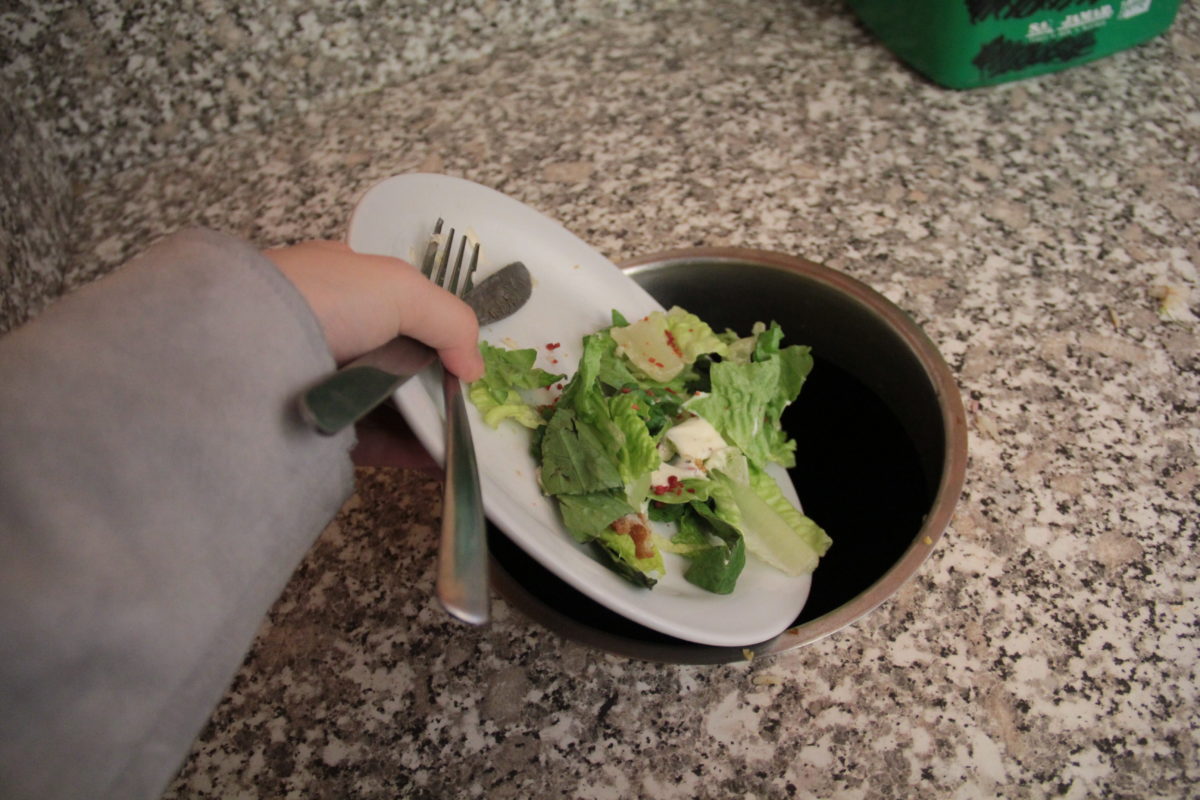Every day, as a former employee at the McCains Pizza Pocket factory, I would see tonnes of ingredients and perfectly edible pizza pockets be thrown into the dumpster or shipped off to be used as bait for animals to keep them away from dumping areas.
Understandably, there are many sanitation hazards and procedures, especially since raw meat is involved in the production of pizza pockets. Food waste was weighed and recorded by employees.
Simon Greenough, a fourth-year student at the University of New Brunswick, believes something should be done in the province to prevent food waste and find a place for it other than a dumpster.
“We produce enough food to sufficiently feed the entire planet, but the problem is insufficient distribution and loss in storage,” said Greenough. “Most food waste is in retail, if produce looks ugly, the supermarket won’t try to sell it and will just throw it out.”
Greenough’s had extensive experience working in the food industry, and attended the first ever Youth Agriculture Summit in Calgary, 2013 before he came to University.
“The theme of the summit that year was Feeding a Hungry Planet so it was a lot about food security, GMOs, and population growth,” said Greenough.
Greenough said his experience in the food industry and the Agriculture Summit was very enlightening on the issue of food waste.
Molly Smythe, a UNB student, worked for Tim Hortons from 2013 to 2015. She said baked goods were made fresh every day, but everything that wasn’t sold was thrown away.
Smythe believes creating links between food companies and charities would prevent unnecessary waste.
“I think this would be a great idea, as the food, which is perfectly edible, is thrown away for no good reason. If donated it could be put to use, while also helping those who are hungry,” she said.
During her time at Tim Horton’s Smythe decided against expressing her concerns for the wasted food.
“I really didn’t have much say in the matter,” she said.
The Aquinian reached out to Aramark for comment on food waste on campus but they did not respond before this story went to press.
Food waste is a widespread issue that has had detrimental effects upon the human race and the world. Greenough believes that food waste has separate issues in developed countries as opposed to underdeveloped countries.
“In more developed countries, the ugly food problem is an issue, but in underdeveloped countries, it has more to do with storage of the food.”
New Brunswick is behind other provinces when it comes to tackling food waste, according to Greenough.
“When I worked in Nova Scotia, we had compost programs that would give some value back to all the wasted, fresh food,” said Greenough. “I think implementing a similar strategy would greatly benefit the food waste issue in New Brunswick, and around the world as well.”
In a statistic from the Food and Agriculture Organization of the United Nations, roughly one third of the food produced for human consumption each year, which is approximately 1.3 billion tonnes, gets lost or wasted.
The statistics also show that food waste is a huge contributor to the squandering of resources such as water, land and energy. It also has a detrimental effect on the environment and climate change, as massive amounts of greenhouse gasses are produced by the food industry.
Wasted food in Latin America could feed 300 million people, in Europe 200 million people, and in Africa 300 million people.
– With files from Maria Jose Burgos

